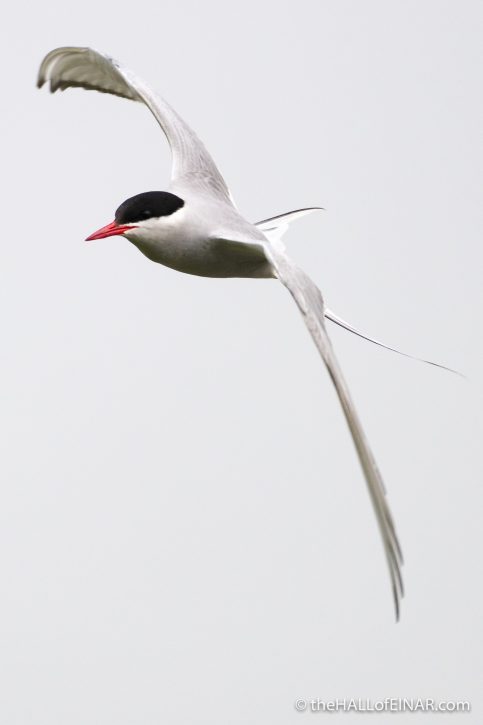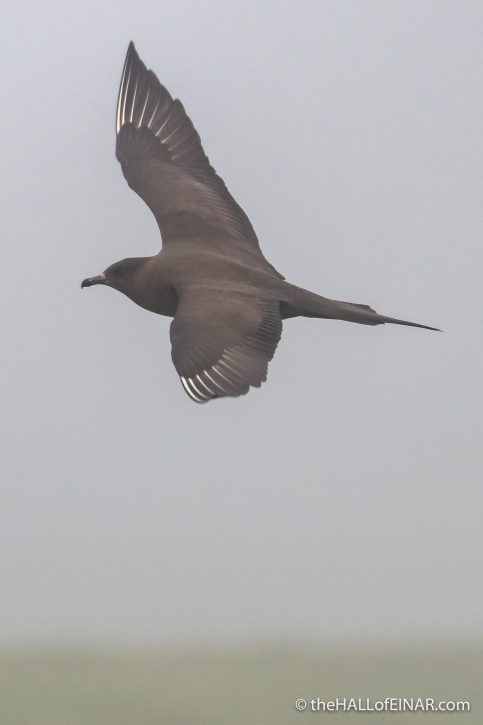Parasiticus
Animal behaviour is happening all around us; curious acts, of ancient origin, repeated in ever-changing patterns. Living things are incredibly complex, but what they do is made up of simple building-blocks of behaviour, expressed in shifting combinations.
The Arctic Terns at the north end of Westray can’t help themselves but attack us. We are a dangerous intrusion into their territory. They have chicks which are relatively defenceless. The parents will do whatever it takes to dissuade us from walking further.
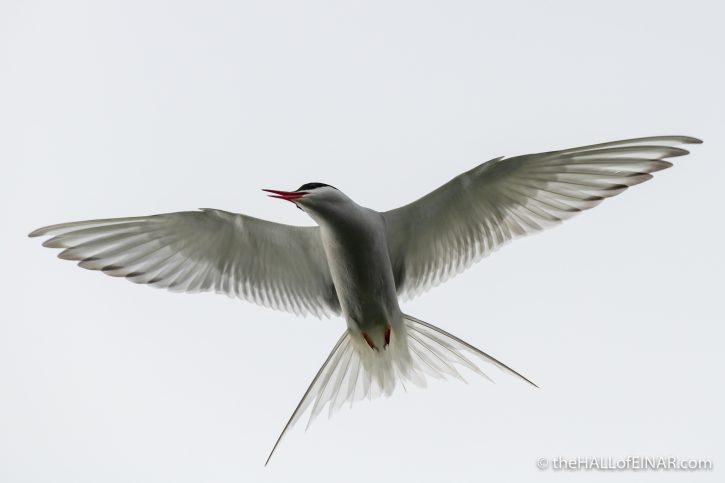
The ones with the most effective aggressive behaviour have more chicks which reach breeding age which have more chicks which reach breeding age and on and on. Behaviour is reinforced, naturally, from generation to generation, across evolutionary time.
As well as the physical attributes of this Arctic Tern being tuned to perfection by natural selection, it’s a full panoply of its behaviours which have been tuned too.
Species evolve in harness with one another and often reach a stalemate of cold war proportions. Out in the haar is an Arctic Skua chasing an Arctic Tern. Or did it start the other way around?
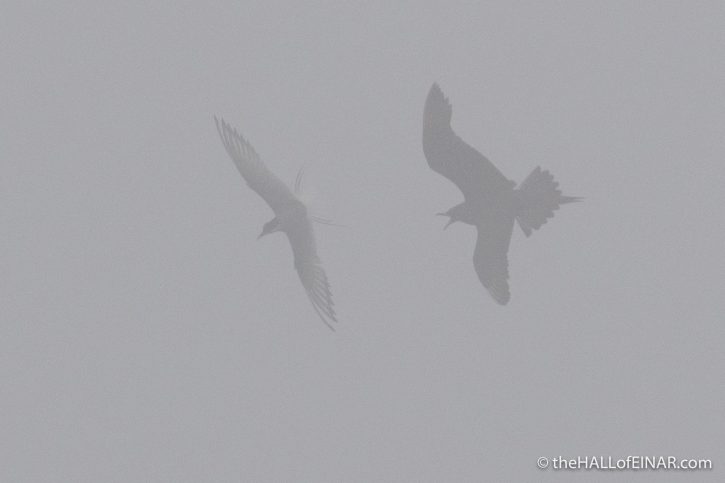
Arctic Terns have been mobbing this Arctic Skua; they recognise it as a threat instinctively. Arctic Skuas live by hunting the hunters. They are the equivalent of Omar from The Wire; the character who steals from the drug-dealers.
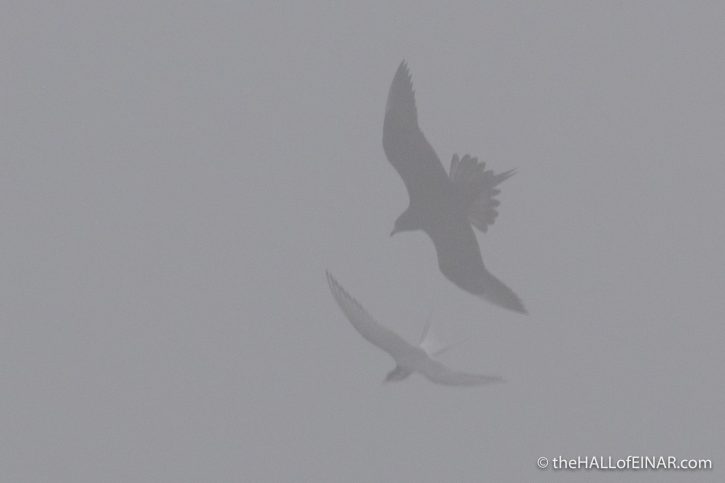
Arctic Skuas feed their families by stealing fish from birds which have expended their energy catching it. Why bother catching fish when you can steal a fish another bird has caught? It’s their nature. Their scientific name is Stercorarius parasiticus.
They act out an ever-repeating pattern of aerial battles with the Arctic Terns: A Tern returns, triumphant with a fish; it calls loudly; other Terns come to greet it; an Arctic Skua appears out of the fog; the Terns mob it; and repeat.
On such a grey day it’s a thrill when the Arctic Skua approaches and flies past.
How much of my behaviour is simply a combination of familiar patterns? Am I just a predictable animal responding to a stimulus with a pre-programmed response? Taking photographs tickles the same primitive pleasure-centres as those of a hunter capturing a meal for themselves. Being here is tickling my pleasure centres.
I may think I’ve chosen to come out here. Did I really?
And you? Why are you here reading my blog?
